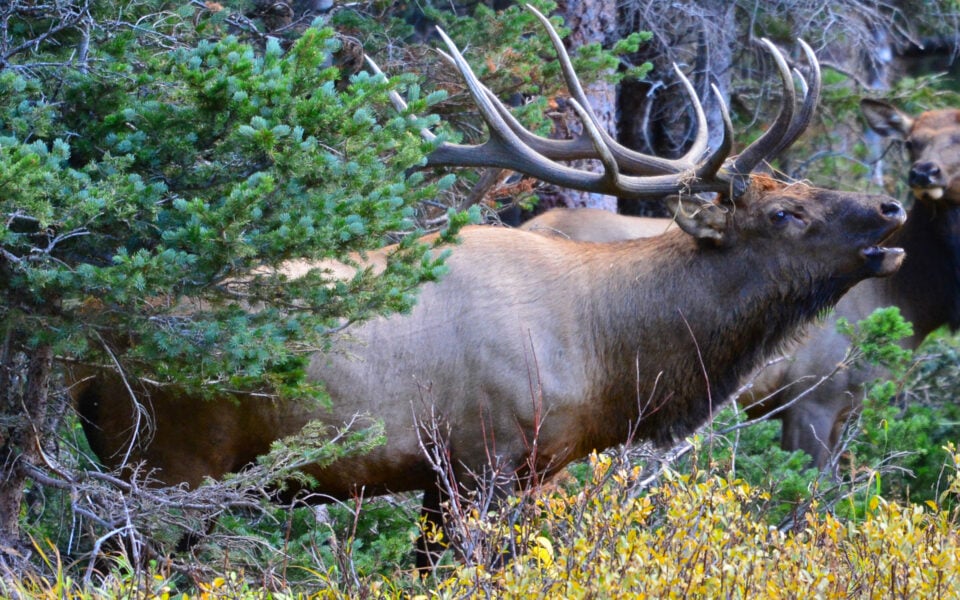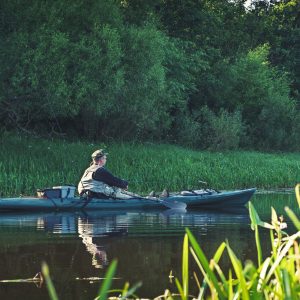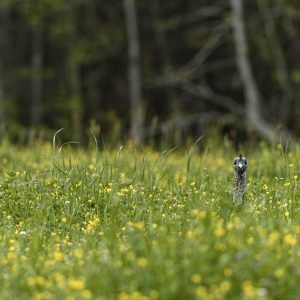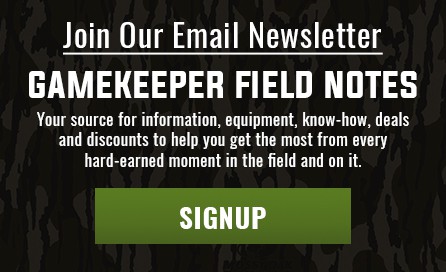When planning an out-of-state hunting trip and trying to figure out how to make our outdoor dreams come true, one of the primary questions we as hunters often ask ourselves is, “should I hire a guide or outfitter, or can I do it on my own. Having gone through many of these decisions and processes myself over the years I wanted to share a few of my thoughts and perhaps a few “lessons learned” from several mistakes I made along the way.
Deciding What & Where to Hunt
Figuring out what species you wish to pursue and how far you’re willing to travel will go a long way towards determining your options. For example, if you wish to pursue turkeys, whitetails, mule deer, black bear, elk or pronghorn here in the western US, you may be able to research and save enough to accomplish that – and many of those species can be a DIY hunt. But if your ambition is traveling to Canada, Alaska or some other country, for species other than “our country’s basics,” it may be financially out of reach, time constraints may limit you or it may not be legal. At the very least, it’s certainly more difficult.
Several resources are readily available when beginning your journey. Reading magazines, books, watching the outdoor channel, and online research can all be extremely beneficial. Some of my favorite sites to ask questions and do research are “HuntTalk.com” and “Bowsite.com.” Many subscription services are also available like “GoHunt” or “Huntinfool.”
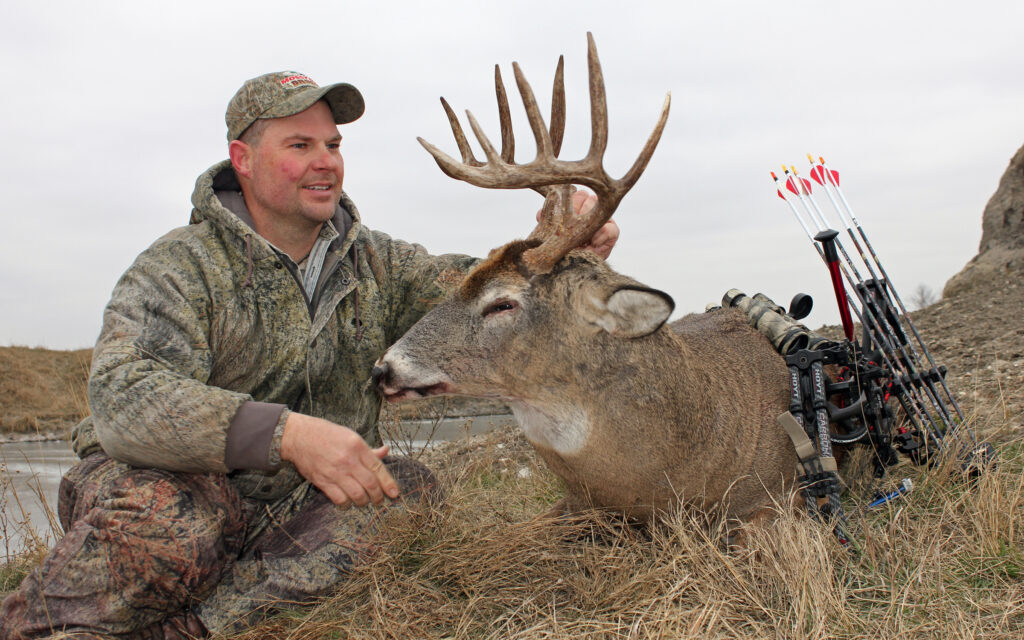
You can also learn a ton by simply talking to other hunters and the tried and true “word of mouth.” Attending hunting shows and various conservation banquets will put you in contact with many other like-minded serious hunters that likely share the same dreams and goals as you are working toward. Sports shows, like Deer Classics, will most likely have a number of outfitters in attendance and you can book your trip on the spot or collect lots of information and you’re able to talk to the people you’ll be dealing with face to face.
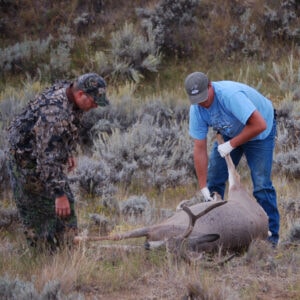
Todd Amenrud
Once you have decided on your species goals and drilled down onto a state or area, it’s time to think about what you can do with your current life situation. What is harder to come by, time or resources? If you are younger, funds may be the hardest obstacle to overcome. If you are more established in life, perhaps you have the funds to take a dream hunt or out of state adventure but you don’t have a lot of vacation time to spare away from family and work obligations. Further along, you may be retired with some available funds, lots of time on your hands but perhaps your physical limitations are a concern.
Personally, I’ve gone through all of those situations to varying degrees and have worked through the wickets to try and make my hunting goals a reality. In my 20’s I longed to hunt in a few areas, but saving the money required was more difficult. I personally opted to hunt do-it-yourself (DIY) for elk and mule deer in Colorado, whitetails in Illinois, Iowa and Nebraska and antelope in Wyoming. Trips to Canada for black bear, whitetails or caribou required different planning, and it’s also mandatory that I hire an outfitter and save thousands to make those dreams come true. These are the types of questions and options we all face when deciding what and where to hunt as well as our resource options or preferences regarding DIY or outfitted hunting.
Choosing an Outfitter
If the species or location you choose requires an outfitter, or if you just want to maximize your success opportunity on a limited timeframe, choosing who to hunt with is a very important step. By using word of mouth, online or print research or even using hunting services or looking through outfitters booths at hunting shows, you will need to build a list of possible options and do your research to choose what is best for your needs. Talk to them on the phone or via e-mail to let them know what kind of hunt you are seeking. Ask a lot of questions and get references, both successful and unsuccessful.
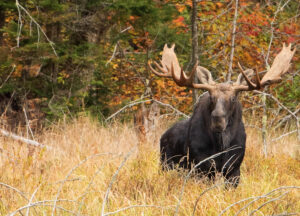
Jim Cumming
I can offer one serious mistake that I made back in the early 90’s, when I wanted to hunt the dark antlered northern whitetails in Canada’s prairie region. I was attracted by the magazine adds with huge non-typical antlers and seemingly high success rates. I tried to ask all the right questions and talk to previous hunters. I was provided a few names and numbers of successful hunters but failed to ask for unsuccessful clients or talk with local authorities about my outfitters reputation.
Long story short, I wound up in an overbooked camp. The outfitter had recently lost all of his private land access and we were hunting only public land. Worse yet, I witnessed illegal activities by the guides, and the outfitter himself wound up in trouble and out of business the very next year after several clients complained to authorities. I learned a LOT and it was an expensive lesson for a 20 year old cash-strapped hunter.
Conversely I’ve had a couple outstanding guided hunts over the years after learning some hard lessons. Social media is a great tool for locating and listening to outfitters all over as well as directly contacting previous clients and agencies. Asking questions like how long they’ve been in business? What their repeat client rate is? Terrain, lodging, food, private or public lands are things you definitely need to ask about. As far as price, are there hidden fees? What is expected of the hunter, what is provided by the guide, outfitter or camp staff? What their hunting style is, have they had any game violations and what the success and opportunity rates are.
Merely finding a reputable outfitter in an area you’re interested in doesn’t complete the process for a hunter. You, as a hunter, have to be ready by being physically and mentally prepared for the adventure. You are paying for knowledge and access as well as the experience provided in camp with amenities and food etc.
On a recent hunt, my outfitter and guide were exceptionally knowledgeable and the area was an absolute dream for any public land elk bowhunter. I’d practiced diligently and was in good shape. But when the moment of truth came for my opportunity, I missed. Then a few days later I missed again. In fact, out of the entire two week season my outfitter had booked in the area, I was the only one out of 8 bowhunters that failed to take an elk. It was my fault entirely, I’d misjudged the distances on both shots – one high and one low. You aren’t “buying an animal” on an outfitted hunt, all you can expect is an honest effort and good quality experience. You yourself need to be prepared to “close the deal.”
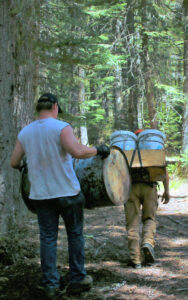 For most of us, cost is a factor in what we decide. If you buy a cheap hunt, that’s what you’re going to get. An outfitter who charges bargain fees will probably have third-rate stock, equipment, lodging, food, and support staff. Beware of any outfitter that guarantees you an animal or even an opportunity. Weather and populations have an impact. People are human and unless you are choosing a less than fair-chase situation, there are no guarantees in hunting. I much prefer a real talk and honest assessment. If the outfitter you are dialing in on says, if you are in good shape and can shoot, your opportunity to get a chance is very high. Those are situations I can deal with.
For most of us, cost is a factor in what we decide. If you buy a cheap hunt, that’s what you’re going to get. An outfitter who charges bargain fees will probably have third-rate stock, equipment, lodging, food, and support staff. Beware of any outfitter that guarantees you an animal or even an opportunity. Weather and populations have an impact. People are human and unless you are choosing a less than fair-chase situation, there are no guarantees in hunting. I much prefer a real talk and honest assessment. If the outfitter you are dialing in on says, if you are in good shape and can shoot, your opportunity to get a chance is very high. Those are situations I can deal with.
Hunting isn’t a given, but you need to do the research and be prepared in order to hold up your end of the bargain. Know how to shoot. This seems obvious, but a great many hunters aren’t effective shots. Let’s say you’re an archer and want to do a pronghorn antelope hunt in a Western state – judging distance in an open prairie is a lot different than our whitetail woods east of the Mississippi.
For a firearm hunter, if you want to keep things at 300 yards and under, tell the guide beforehand. If you’re a “long-range superman,” tell them, and then be prepared to back it up. Get up, hunt hard and don’t complain. Never “guide the guide” as they likely live there, know the animals, patterns and what the highest success option is. They want you to be successful!
I can count on one hand the number of outfitted or guided hunts I’ve actually been on. I had some awesome experiences and one very bad one that I could have prevented with better research on my end.
DIY Out-of-State Hunts
If you don’t have the financial means or if you are just the type that wants to do things on your own, take heart, there are many great opportunities out there. A total DIY experience may seem daunting if you wish to travel half way across the country, but it can produce high success -every year, thousands of trophy animals are harvested by well-prepared do-it-yourselfers.
Whether you choose to hunt elk, antelope or mule deer “out west” or travel to a nearby state for whitetails or turkey, opportunities abound for those willing to look into things and prepare. I’ve done DIY hunts in over a dozen states, with mixed results, but I’ve always been successful in preparing myself, finding game and having a great adventure.
With species like whitetails and turkey, tags are usually pretty easy to acquire, and public lands or even “trespass fee operations” may be available. It may be just across your state’s border. Then all you need to do is save a few hundred dollars, review a few areas and cover your food and sleeping arrangements.
When doing a DIY hunt, I like to save more money by camping and bringing my own meals. Heading further west for species like black bear, mule deer, pronghorn or elk will likely cost you a lot more in tag fees (involve a draw) and travel expenses, but the abundance of public land and access is far superior to most of the Eastern and Mid-Western states.
You can easily research areas from most states game agency websites as well as through awesome subscription services like GoHunt or OnXHunt. National Forest, Bureau of Land Management and state lands make up huge chunks in the western US. We’ve all heard of limited draw and premium areas, and that’s certainly where the bulk of the largest elk and mule deer are often taken.
If “the best of the best” is your goal, I highly encourage people to start putting in applications and building points through each states application process. This is going to cause you to incur an annual investment, but if you want to hunt for specific species in the best areas, you’ll have to start.
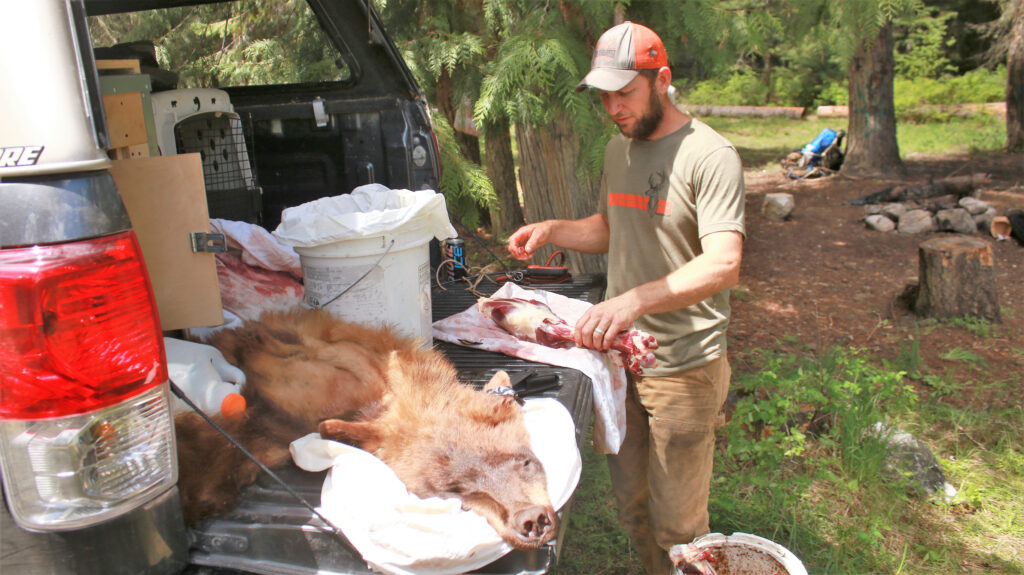
I also highly encourage people to research and hunt general and over the counter seasons in several states. There are some fantastic opportunities for adventure and new experiences that aren’t really as expensive as most may think. Opportunities that quickly come to mind are deer and elk in Idaho, Wyoming and Montana, Deer in Utah and late season deer in Arizona, pronghorn in Wyoming and Montana and even black bear in Idaho and Montana.
For the whitetail aficionado, it’s hard to beat looking into Ohio, Kentucky, Missouri, Kansas and even North Dakota. These states have easily obtained and inexpensive non-res-ident licenses, as well as ample public hunting opportunities, providing some great and inexpensive adventures for the hunter willing to put in the time, effort and research.
Planning your trip is where a lot of the fun comes for me. If you’ve drilled down on the species you want to target and the state, now it’s time to locate your specific region or area, gain access, plan your budget and fine-tune the details of the experience. Social media can be a great tool as well as state hunting sites – watch, listen and learn. Many people are all too willing to show pictures of their hunts and may even go so far as to offer up general locations and habitats that have offered some of the better opportunities in those locales. I also call the state’s game agencies and get into contact with local conservation officers, biologists and conservation organizations.
Being a member of the National Deer Association (NDA), Rocky Mountain Elk Foundation (RMEF), National Wild Turkey Federation (NWTF), and others, not only allows you to help your favorite species, they can also give you an “in” with a local who may not mind helping a fellow conservation-minded hunter. Some hunters can be extremely tight-lipped when it comes to their “honey holes,” but some are also extremely generous and friendly to people who they feel are “like minded” and do things the right way. I’ve made several life-long friends throughout the country during efforts to research previously unknown spots.
Scouting
Once you look into success rates, percentage of public lands, buck to doe ratios and terrain, it’s time to think about making a scouting trip. You can save a lot of money on these hunts by teaming up with a local friend and splitting the costs. Another great source of information is befriending a local hunter that may not be too tight lipped and offers some assistance.
Total DIY hunting endeavors are obviously typically not as successful as high-priced outfitted hunts in the very best locations, but I promise you they can be extremely rewarding. The cost savings and the ability to go back year after year will pay off in knowledge of the area, all but ensuring higher success rates down the road.
Trespass Fee Option
A third option I’ve utilized more over the past decade is called the “trespass fee option.” Many landowners don’t necessarily want to run guided hunts, or allow a bunch of people they don’t know to access their land. An ever increasing option for landowners is to allow a few hunters onto their properties for a small trespass fee. I’ve researched and located trespass fee operations in several states and they can be absolute gold. By asking around to local landowners, fellow hunters or state agencies you may be able to locate some great hunting properties for only a few hundred dollars. I located one such rancher in NE Wyoming 5 years ago, and I’ve become friends and hunted with him every year since. Trespass fee opportunities may be harder to find because they don’t advertise, but the hunting can be great with a pittance of the cost of a similar guided hunt.
Whether you choose Guided, DIY or a Trespass Fee hunt, you should really consider all your options and do the research. Opportunities abound across the country and they are there for “anyone who wants them bad enough” and those who put in the time and research to gain access.

